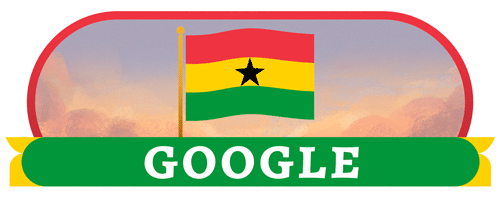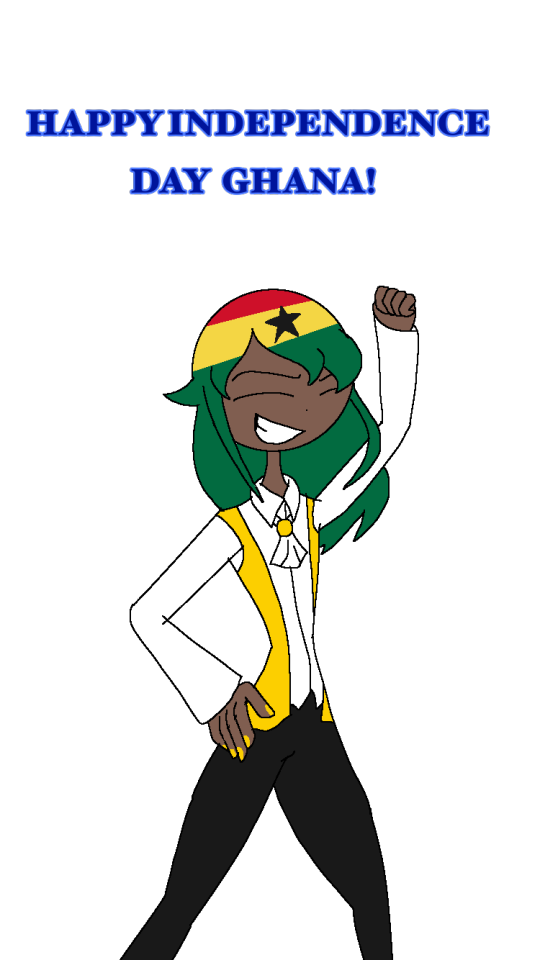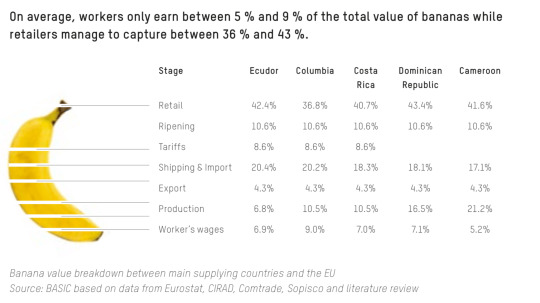#Ghana independence day
Explore tagged Tumblr posts
Text



Ghana at 68
#accra ghana#labadi beach#laboma beach#black girl aesthetic#black women#beauttiful girls#ghana independence day#blackout#black tumblr#accra#accra girl#akuawaist#waist beads
97 notes
·
View notes
Text

🇬🇭 Happy Ghanaian Independence Day 💚💛❤️
In 1957, Ghana gained independence from Britain's colonial rule.
88 notes
·
View notes
Text
HAPPY GHANA INDEPENDENCE DAY OOOO!!!!🇬🇭🇬🇭🇬🇭🇬🇭🫶🏽🫶🏽🫶🏽🙏🏾🙏🏾
4 notes
·
View notes
Text
Its lil miss independent poppin her shit on our independence!

#thank u bree for another banger#bree runway#ghana independence day#ghanaian independence day#music#new music
1 note
·
View note
Text
Happy Ghana Independence Day to my fellow Ghanaians 🇬🇭 please it’s our day don’t let trumps buffoonery ruin our day


1 note
·
View note
Text
Happy Ghana Independence Day.
70 years is not long at all.
🇬🇭🇬🇭🇬🇭
1 note
·
View note
Text
May 25, 2025 - African Liberation Day: a day of continued anti-imperialist and anti-colonial struggle!
Revolutionary organizations across the African continent mobilized for African Liberation Day to declare that the fight for sovereignty and independence from imperialist and colonial threats continues.
Many groups expressed support for the AES (the Alliance of Sahel States, consisting of Mali, Niger and Burkina Faso), which has taken bold steps to combat imperialist meddling, kicking out French colonial troops and nationalizing several industries owned by foreign multi-nationals. [video]
#africa#african liberation day#pan-africanism#anti-imperialism#anti-colonialism#independence#internationalism#2025#video#aes#alliance of sahel states#mali#niger#burkina faso#françafrique#nationalization#solidarity#south africa#ghana#lesotho#free palestine
222 notes
·
View notes
Text

To our lil bruddas today 🇬🇭
7 notes
·
View notes
Text

#Ghana Independence Day 2024#Today#GIF#AnimatedGIF#Animated GIF#Animation#GoogleDoodle#Google Doodle#google#doodle#GoggleDoddle#Photo
9 notes
·
View notes
Text

HAPPY INDEPENDENCE DAY GHANA!
5 notes
·
View notes
Text
Independence Day Celebration: Camera captures Mahama sleeping during parrade
A video circulating online has sparked intense debate, showing former President John Mahama apparently dozing off during Ghana’s 68th Independence Day celebration at the Jubilee House. The brief clip captures Mahama nodding off, only to quickly wake up and compose himself, as if nothing had happened. The incident has ignited a heated argument on social media, with some Ghanaians expressing…
0 notes
Text





Angel Maxine "Kill The Bill, Our Love Is Our Will" in Accra, Ghana (2022)
#angel maxine#ghana#ghana independence day#ghanaian history#ghanaian independence day#kill the bill#love is our will#kill the bill love is our will#black trans#black trans women#black trans woman#trans women#trans woman#trans#ghanaian
25 notes
·
View notes
Text
Neocolonialism is alive and well in Africa. The issues of governments starting in debt and opportunistic countries jumping in and offering loans continues. It's also the same countries they're just different governments/economic systems.
#Russia has a relationship with countries like Ghana dating back to USSR days.#Africans tended to go to university in the USSR post independence.#And of course all those loans will need to be repaid. Sometimes that comes in the form of exclusive monopolies on resources.
1 note
·
View note
Text
The local population in countries that export bananas typically eat different varieties grown primarily by small farmers. The ones for the Americans and the Europeans, Cavendish variety bananas, are grown in huge, monoculture plantations that are susceptible to disease. The banana industry consumes more agrichemicals than any other in the world, asides from cotton. Most plantations will spend more on pesticides than on wages. Pesticides are sprayed by plane, 85% of which does not land on the bananas and instead lands on the homes of workers in the surrounding area and seeps into the groundwater. The results are cancers, stillbirths, and dead rivers.
The supermarkets dominate the banana trade and force the price of bananas down. Plantations resolve this issue by intensifying and degrading working conditions. Banana workers will work for up to 14 hours a day in tropical heat, without overtime pay, for 6 days a week. Their wages will not cover their cost of housing, food, and education for their children. On most plantations independent trade unions are, of course, suppressed. Contracts are insecure, or workers are hired through intermediaries, and troublemakers are not invited back.
Who benefits most from this arrangement? The export value of bananas is worth $8bn - the retail value of these bananas is worth $25bn. Here's a breakdown of who gets what from the sale of banana in the EU.

On average, the banana workers get between 5 and 9% of the total value, while the retailers capture between 36 to 43% of the value. So if you got a bunch of bananas at Tesco (the majority of UK bananas come from Costa Rica) for 95p, 6.65p would go to the banana workers, and 38p would go to Tesco.
Furthermore, when it comes to calculating a country's GDP (the total sum of the value of economic activity going on in a country, which is used to measure how rich or poor a country is, how fast its economy is 'growing' and therefore how valuable their currency is on the world market, how valuable its government bonds, its claim on resources internationally…etc), the worker wages, production, export numbers count towards the country producing the banana, while retail, ripening, tariffs, and shipping & import will count towards the importing country. A country like Costa Rica will participate has to participate in this arrangement as it needs ‘hard’ (i.e. Western) currencies in order to import essential commodities on the world market.
So for the example above of a bunch of Costa Rican bananas sold in a UK supermarket, 20.7p will be added to Costa Rica’s GDP while 74.3p will be added to the UK’s GDP. Therefore, the consumption of a banana in the UK will add more to the UK’s wealth than growing it will to Costa Rica’s. The same holds for Bangladeshi t-shirts, iPhones assembled in China, chocolate made with cocoa from Ghana…it’s the heart of how the capitalism of the ‘developed’ economy functions. Never ending consumption to fuel the appearance of wealth, fuelled by the exploitation of both land and people in the global south.
7K notes
·
View notes
Text
Queen Yaa Asantewaa
How did a determined queen lead her people in a bold stand against colonial forces? Discover the inspiring story of Queen Yaa Asantewaa, the fierce leader who became a symbol of resistance in the fight for Ashanti independence. Born in 1840, Yaa Asantewaa was a queen mother of the Ashanti Empire in present-day Ghana. When British colonial forces exiled the Ashanti king and demanded the sacred Golden Stool, symbolizing the Ashanti nation’s soul, Yaa Asantewaa rose to defend her people. In 1900, she led the Ashanti in the War of the Golden Stool, rallying her people with powerful speeches that ignited their resolve to resist. As a commander, she organized and led her forces in a fierce battle against the British, who were stunned by her leadership and the strength of Ashanti resistance. Though the Ashanti eventually faced defeat and Yaa Asantewaa was exiled, her bravery and defiance left a lasting legacy as a symbol of resistance against oppression.
Follow @authentic_african for daily posts on African News, History, and Pop Culture
#yaa asantewaa#Ghana#african#afrakan#kemetic dreams#africans#brownskin#brown skin#afrakans#african culture#afrakan spirituality#epic video
56 notes
·
View notes
Text




The Kingdom of Ghana: An In-Depth Analysis of Africa’s First Great West African Empire
Introduction: Ghana – The Birthplace of West African Power
The Kingdom of Ghana (c. 300 CE – 1200 CE) was the first major empire in West Africa, laying the foundation for later civilizations like Mali and Songhai. It was a powerful economic, military, and political force, controlling the lucrative gold-salt trade and influencing African governance for centuries.
Despite its historical significance, Eurocentric narratives often ignore Ghana’s role as one of the world’s great early civilizations. From a Garveyite perspective, the study of Ghana is essential because it represents:
Black economic independence – Ghana controlled its own resources, particularly gold, without reliance on external powers.
Black political leadership – Ghana had a structured government with kings, officials, and military leaders.
Black resistance and strength – Ghana’s powerful military protected its wealth and sovereignty for centuries.
By understanding the Kingdom of Ghana, Black people today can reclaim their legacy of self-sufficiency, wealth, and governance.
1. The Origins of the Ghana Empire
A. The Formation of Ghana and the Soninke People
The Kingdom of Ghana was founded by the Soninke people, who settled in the Sahel region of modern-day Mali, Mauritania, and Senegal.
The name “Ghana” means “Warrior King”, reflecting the strong military leadership of its rulers.
Ghana’s strategic location along the Niger and Senegal Rivers allowed it to develop into a major trade hub.
Example: The first rulers of Ghana built walled cities, royal courts, and advanced trade networks, proving that African civilizations were highly developed before European contact.
Key Takeaway: Black civilizations had strong governance, military organization, and economic control long before colonization.
2. The Economic Power of Ghana: The Gold-Salt Trade
A. Ghana’s Monopoly Over Gold and Salt
Ghana was the richest kingdom in Africa due to its control over gold mines in Bambuk and Wangara.
Gold was traded for salt, a vital resource for preserving food and maintaining health.
The empire regulated trade through a taxation system, charging merchants for entering and leaving Ghana’s markets.
Example: Arab traders described Ghana’s capital as a city of gold, where the king sat on a throne made of gold, surrounded by gold-adorned officials.
Key Takeaway: Black nations can build immense wealth by controlling their own resources instead of exporting them to foreign powers.
B. Ghana’s Trade Network: A Global Economic Force
Ghana was a central hub in the Trans-Saharan Trade Network, connecting Africa to the Middle East, North Africa, and Europe.
The empire exported gold, ivory, and slaves, while importing horses, textiles, and metal weapons from North Africa and the Middle East.
Merchants from as far as Spain, Egypt, and Persia travelled to Ghana’s markets, proving its global influence.
Example: The Muslim traveller Al-Bakri (11th century) wrote that Ghana’s king controlled a vast army and enormous gold reserves, rivalling any empire of his time.
Key Takeaway: Africa was the economic engine of the world long before colonial exploitation.
3. The Political and Military Structure of Ghana
A. The Government: Centralized African Leadership
Ghana was ruled by a king (Ghana) who had absolute power over trade, military, and justice.
The king was assisted by ministers, governors, and local chiefs who managed different regions of the empire.
Ghana practiced a dual-government system, allowing local leaders to govern their own territories under Ghana’s oversight.
Example: This structure allowed Ghana to remain stable and wealthy for nearly 900 years, proving the effectiveness of African governance.
Key Takeaway: African political systems were advanced, structured, and efficient—contrary to colonial myths of “tribal” disorganization.
B. Ghana’s Military Strength: The Defender of Wealth
Ghana had a powerful military, consisting of archers, cavalry, and elite infantry.
The king maintained a permanent army, funded by gold trade taxes, ensuring the kingdom’s defense.
Ghana’s army protected trade routes from bandits and rival states, securing economic stability.
Example: Arab historians wrote that Ghana’s army could field 200,000 soldiers, making it one of the most powerful in the world.
Key Takeaway: A nation can not maintain economic independence without a strong military to protect its wealth.
4. The Cultural and Religious Influence of Ghana
A. Religious Diversity in Ghana
Ghana was a religiously diverse empire, where Islam and traditional African spiritual systems coexisted.
Many merchants and elites converted to Islam to facilitate trade with North African Muslims.
However, the majority of the population practiced traditional African religions, honouring ancestors and nature spirits.
Example: Unlike later West African empires, Ghana did not impose Islam on its people, ensuring religious freedom.
Key Takeaway: African civilizations balanced spiritual traditions and foreign influences without losing their identity.
B. The Influence of Ghana on West African Culture
Ghana developed a unique architectural style, including stone palaces, royal courts, and large markets.
Its traditions, governance, and trade systems laid the foundation for later African empires like Mali and Songhai.
Ghana’s kings were seen as divine figures, reinforcing the connection between political power and spirituality.
Example: The successors of Ghana, particularly Mali’s rulers like Mansa Musa, adopted and expanded Ghana’s political and economic systems.
Key Takeaway: The greatness of African civilization did not end with one empire—each built upon the other’s success.
5. The Decline of Ghana: Lessons for Black People Today
A. What Led to Ghana’s Fall?
Several factors contributed to Ghana’s decline:
Invasions from the Almoravids (11th century), a Muslim Berber group from North Africa.
Over-reliance on gold trade, making the economy vulnerable to shifts in market demand.
Internal conflicts and rebellions from vassal states wanting independence.
By 1200 CE, Ghana had weakened, allowing the Mali Empire to rise and take control of West Africa.
Example: The decline of Ghana did not mean the end of African greatness—its legacy continued through Mali and Songhai.
Key Takeaway: A strong nation must diversify its economy and maintain military strength to prevent foreign domination.
6. The Garveyite Vision: Rebuilding Ghana’s Legacy Today
Ghana proves that Africa was once the wealthiest continent on Earth.
Black nations today must control their own resources, just as Ghana controlled its gold.
Pan-African unity is necessary—African nations must work together, just as Ghana united multiple regions.
Black economic independence must be restored—wealth must stay in Black hands.
Final Thought: Will We Reclaim the Legacy of Ghana?
Marcus Garvey said:
“Africa for the Africans, at home and abroad.”
Will Black people continue to be economically dependent, or will we rebuild Ghana’s wealth for the future?
Will we protect our resources and industries, or let foreign nations control them?
Will we celebrate our past and use it to shape our future, or allow Africa’s legacy to be erased?
The Choice is Ours. The Time is Now.
#black history#black people#blacktumblr#black tumblr#black#pan africanism#black conscious#africa#black power#black empowering#blog#GhanaEmpire#african kingdom#black excellence#garveyism#ReclaimOurHistory
18 notes
·
View notes